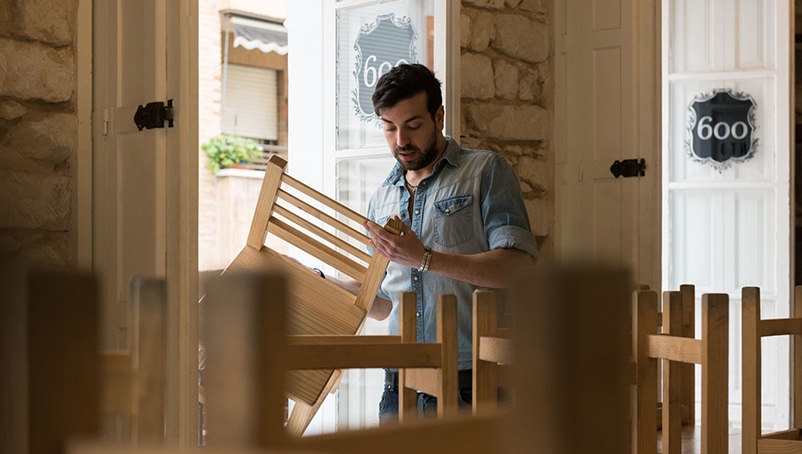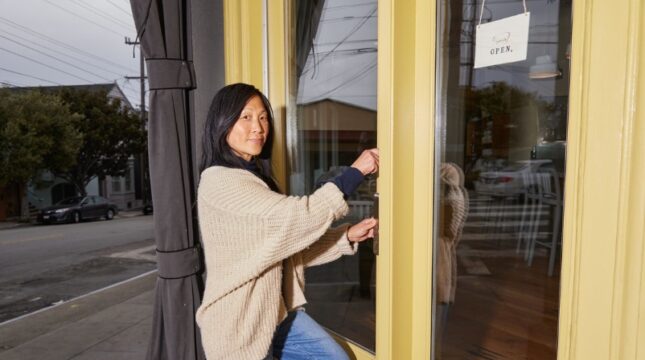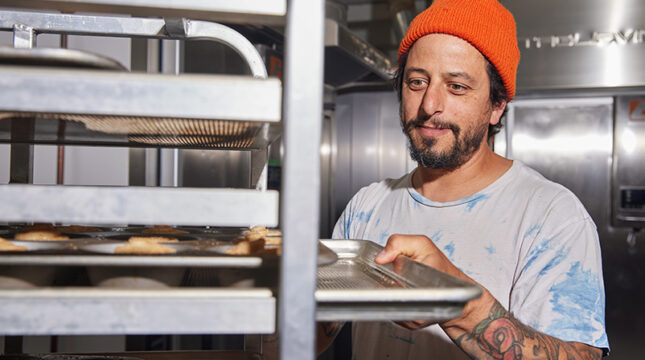If you're among the chefs, foodies and entrepreneurs who dream of opening their own place — you may find that one of the most significant barriers is restaurant startup costs. A restaurant can require a considerable up-front investment. But how much money are we talking about?
A 2018 survey of more than 350 independent restaurants by industry group RestaurantOwner.com found that the lower quartile of restaurant startup costs was under $175,500, while the upper quartile of startup costs was more than $750,500. But costs can vary significantly depending on a restaurant’s location, size and service type.
No matter what kind of restaurant you’re hoping to launch, here’s a guide to some of the most critical items to budget for when opening a restaurant business and the factors that affect their cost.
Licenses and permits
Before you get started, you'll need to take care of the paperwork.
The first thing you'll need is a business license. Fees vary from state to state, so you'll need to check your local rules for exact numbers — but plan on spending anywhere from $50 to $500. In most cases, you’ll need to show proof of restaurant insurance before you can get licensed.
If you're planning to serve alcohol at your restaurant, you'll need a liquor license, which can be expensive, especially if your state has a quota on the number of available licenses.
Depending on your state and the kind of alcohol you want to sell, a liquor license could run anywhere from under $50 to hundreds of thousands of dollars.
You'll also need other permits, including:
- Use and occupancy permit for your building
- Food service and food manager permits from your local health department
- Restaurant dumpster permit
Getting help from a lawyer to review your documents is a good idea. This could add anywhere from $500 to $2,000. Learn more about restaurant licenses and permits here.
Building improvements
There’s a good chance you’ll need to remodel your new restaurant’s physical space, especially if it was never set up as an eatery before.
The startup costs will depend on how much work needs to be done: do you need just to add some cosmetic finishes, or do you need to install a brand new kitchen and lay new plumbing lines?
Your kitchen will account for the majority of your renovation budget. Depending on your location, vendors and existing infrastructure, you may have to spend between $250 to $750 per square foot to renovate your kitchen and between $100 to $500 per square foot for your dining area.
Restaurant equipment
The cost of kitchen equipment depends on the kind of restaurant you're running — but when you add up things like refrigerators, freezers, dishwashers, ovens, ranges and fryers, you could be looking at a cost from tens of thousands to hundreds of thousands of dollars.
Purchasing second-hand equipment can help lower your restaurant's startup costs. Restaurants that have recently gone out of business may be willing to sell their equipment to you at a reduced price.
Design and furniture
While the food is your restaurant’s most important part, the restaurant’s interior is what makes the first impression and shapes the dining experience.
You don't need to spend a fortune on fancy furniture; for some restaurants, the simpler, the better. But it may be worth hiring a restaurant designer to ensure that your restaurant's atmosphere is both attractive and efficiently laid out.
The costs of hiring a designer may vary significantly: from tens of thousands to hundreds of thousands of dollars. Keep in mind that the restaurant's interior can be tough to redo once you're open — so it's important to get it right.
Pre-opening restaurant startup costs
Remember that the actual opening of the restaurant comes with its own expenses. You'll want to launch a well-planned marketing campaign to spread the word, hire and train employees, and more. Expect to spend anywhere from $5,000 to $20,000 here.
Operating costs
After you’ve paid for the initial restaurant startup costs, you’ll be responsible for the ongoing costs of running your restaurant. These include the lease or mortgage, employee salaries, raw ingredients, supplies, utilities, marketing, maintenance and restaurant insurance.
If you took out a restaurant loan to cover your startup costs, you'd also need to pay it back. Your restaurant needs to pull in enough income to cover these costs with enough profit left over for you to make a living.
Restaurant insurance
There are a lot of moving parts at restaurants from busy kitchens to (hopefully) full dining spaces. When opening a restaurant, it's a must to have good coverage for unexpected events.
- General liability insurance can protect your business if you’re held responsible for a wide range of common accidents including third-party physical injury or damaging someone’s property.
- Commercial property insurance can cover the bills if something happens to your gear, equipment or physical space.
- Workers’ compensation insurance can keep you and your crew protected if someone gets hurt on the job.
The cost of insurance depends on factors like the size and type of your restaurant. At NEXT, our restaurant insurance is customized to your needs, so you can get great coverage at an affordable price.
How NEXT helps you get the restaurant insurance you need
Many cities, counties and states require restaurants to have insurance coverage. At NEXT, we make getting restaurant insurance to meet your local requirements easy. Our customized insurance packages let you mix and match policies to get the coverage you need.
With our online application, you can review coverage options, get a quote and purchase your policies fast. As soon as you pay, you'll get immediate access to your certificate of insurance.
If you need help, our licensed, U.S.-based insurance professionals are available to answer your questions.
Get your free instant quote today.






